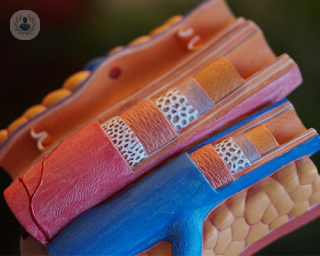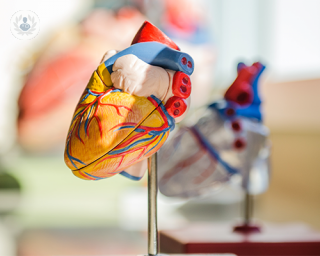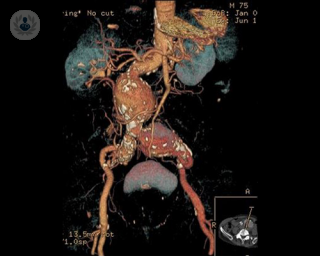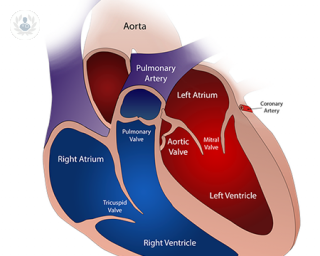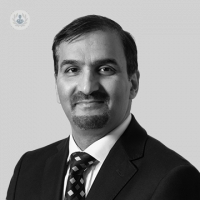Aortic aneurysms
Mr Akin Oluwole - Vascular surgery
Created on: 05-24-2017
Updated on: 10-17-2023
Edited by: Conor Dunworth
What is it?
An aortic aneurysm is an abnormal, progressive and permanent dilation of part of the aorta, the largest artery in the body. The dilation of the aorta leads to its weakening over time and, sometimes, to its rupturing.
An aneurysm can affect the abdominal tract (abdominal aortic aneurysm) as well as the thorax (thoracic aortic aneurysm).

Prognosis
Aortic aneurysm is a life threatening condition: the affected aorta could suddenly rupture, or it could lead to the formation of an embolism, consequently causing a stroke or a heart attack.
What are the symptoms?
An aneurysm doesn't generally cause any symptoms until it has reached a large size, and sometimes there are no symptoms before it ruptures. In these cases, the main symptoms are breathing and swallowing problems, a change in voice pitch, back or chest pain and low blood pressure.
How is it diagnosed?
If the aneurysm isn’t big enough to rupture, it can be diagnosed with an abdominal ultrasound (in case of an abdominal aneurysm) or with an echocardiogram (in case of thoracic aneurysm). In other cases you may also require a thoracoabdominal CT scan.
What causes it?
The main causes for aneurysm are:
- hypertension
- atherosclerosis
- inflammation of the aorta
- genetic disorders of the connective tissues
Your risk of getting an aortic aneurysm increase as you get older, and are higher if you smoke.
How can it be prevented?
You can prevent getting an aortic aneurysm by avoiding smoking and by maintaining a healthy blood pressure and cholesterol levels.
How is it treated?
If the aneurysm is still small, you should periodically monitor it, treat it with medication and make sure to lead a healthy lifestyle. If it has already reached a bigger size, you may need to have open surgery (resection of the dilated area and substitution with a synthetic graft) or endovascular surgery (implanting a metallic prosthesis).
Which doctor should I talk to?
If you have an aortic aneurysm, you are likely to see a range of specialists, including a heart surgeon, a cardiologist, a vascular surgeon and a doctor specialised in internal medicine.

